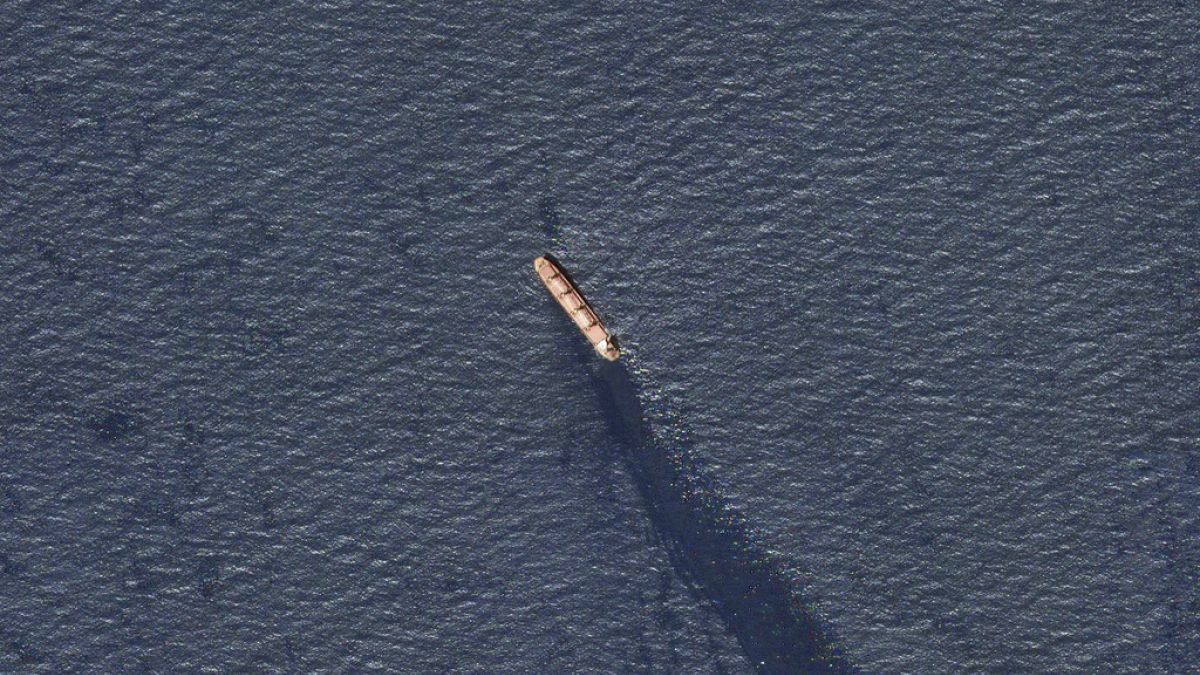The US military has in recent weeks launched waves of strikes on Houthi-held areas inside Yemen in response to the Houthis’ attacks on shipping routes in the Red Sea.
An attack by Yemeni Houthi rebels on a Belize-flagged ship earlier this month caused an 29-kilometre oil slick, the US military said on Saturday.
It also warned of the danger of a spill from the vessel's cargo of fertilizer.
The Rubymar, a British-registered, Lebanese-operated cargo vessel, was attacked on Feb. 18 while sailing through the Bab el-Mandeb Strait that connects the Red Sea and the Gulf of Aden, US Central Command said.
The missile attack forced the crew to abandon the vessel, which had been on its way to Bulgaria after leaving Khorfakkan in the United Arab Emirates. It was transporting more than 41,000 tons of fertilizer, CENTCOM said in a statement.
The vessel suffered significant damage, which led to the slick, said the CENTCOM statement, warning that the ship's cargo “could spill into the Red Sea and worsen this environmental disaster.”
“The Houthis continue to demonstrate disregard for the regional impact of their indiscriminate attacks, threatening the fishing industry, coastal communities, and imports of food supplies,” it said.
The Associated Press, relying on satellite images from Planet Labs PBC of the stricken vessel, reported Tuesday that the vessel was leaking oil in the Red Sea.
Yemen’s internationally recognised government on Saturday called for other countries and maritime-protection organisations to quickly address the oil slick and avert “a significant environmental disaster.
In a statement, the government, which sits in the southern city of Aden, said the vessel is heading toward the Hanish Islands, a Yemeni archipelago in the southern Red Sea.
Separately, CENTCOM said it launched attacks on Houthi-held areas in Yemen on Friday, destroying seven mobile anti-ship cruise missiles that were prepared to launch toward the Red Sea.
It described the strikes as “self-defence,” saying that the missiles “presented an imminent threat to merchant vessels and to the US Navy ships in the region.”
CENTCOM didn’t give further details. Houthi-run media, however, reported strikes by the US and the UK on the district of Durayhimi in the Red Sea province of Hodeida.
The US military has in recent weeks launched waves of strikes on Houthi-held areas inside Yemen in response to the Houthis’ attacks on shipping routes in the Red Sea.
Since November, the rebels have repeatedly targeted ships in the Red Sea and surrounding waters. They claim to be acting over Israel’s war targeting Hamas in the Gaza Strip, however they have frequently targeted vessels with tenuous or no clear links to Israel, imperiling shipping in a key route for trade among Asia, the Mideast and Europe. The targeted vessels have included at least one with cargo for Iran, the Houthis' main benefactor.
